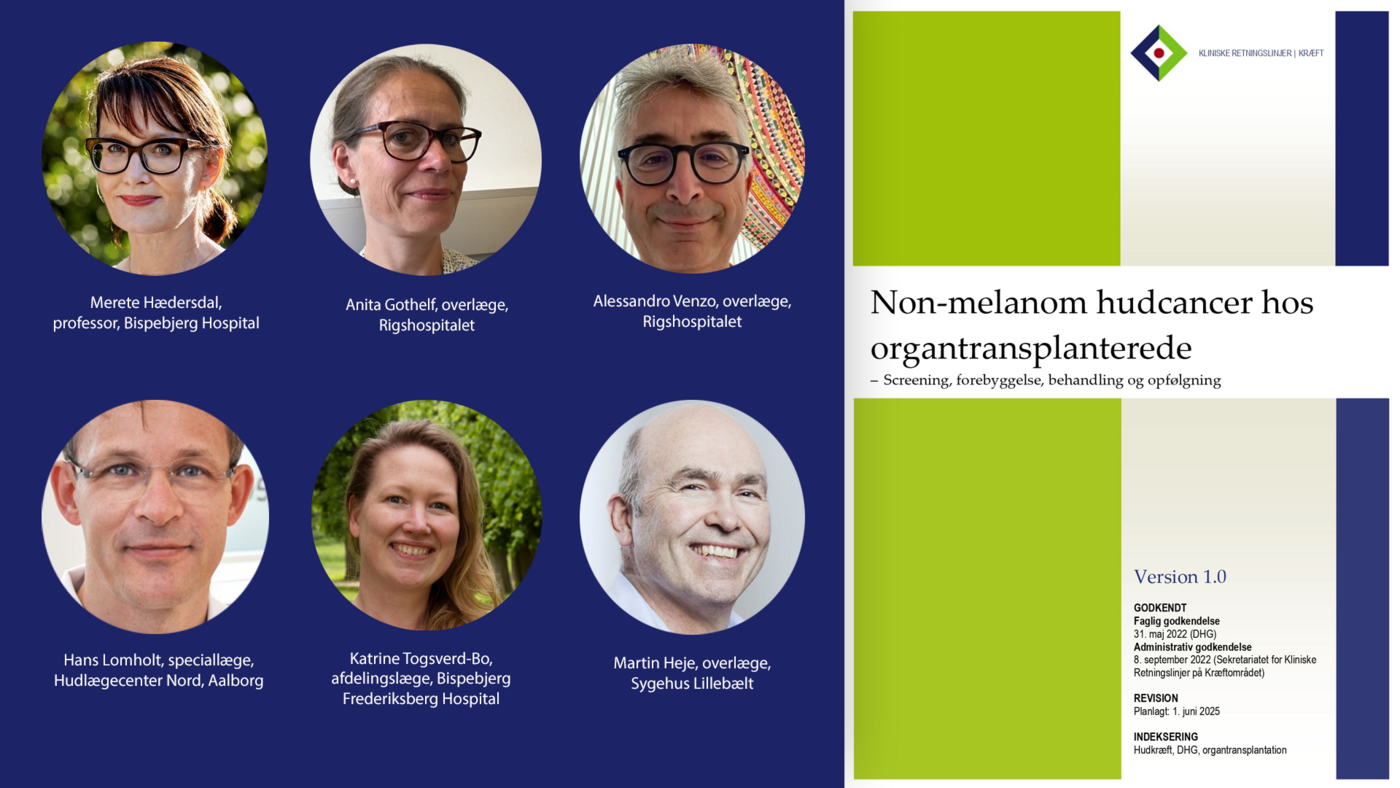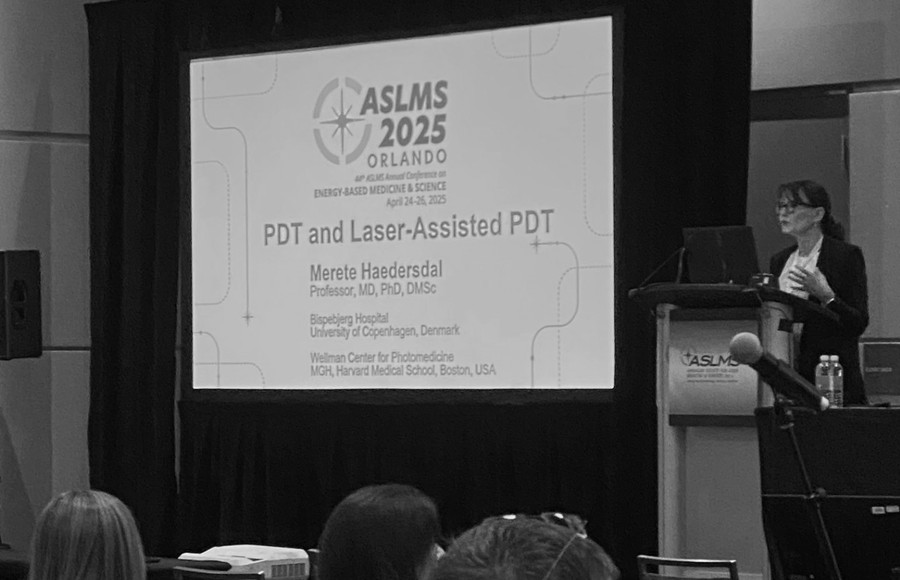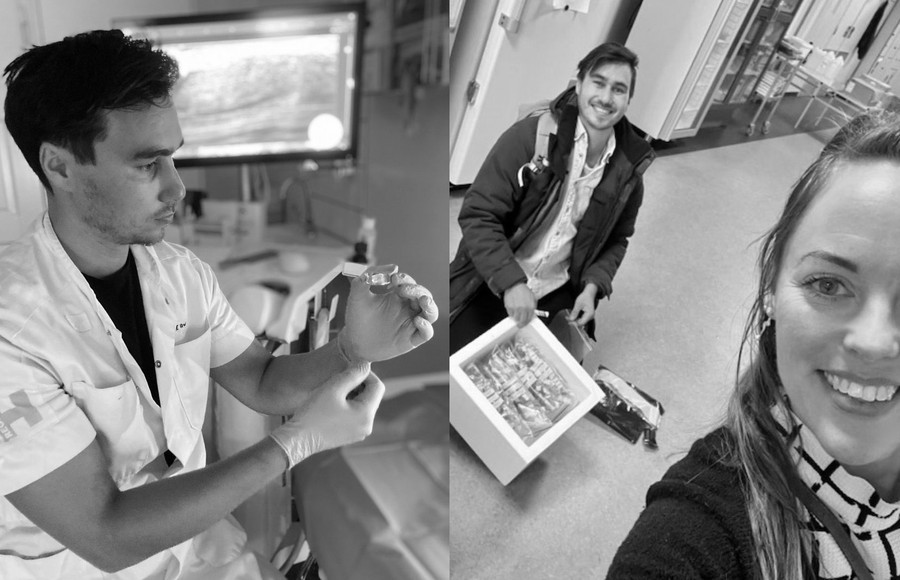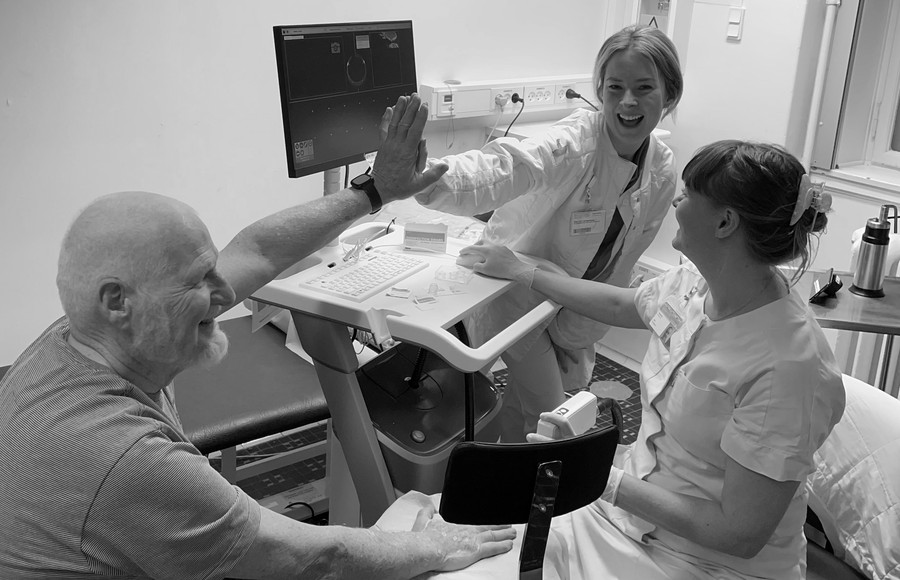New national guideline for treatment of organ transplant patients with skin cancer published to ensure high-quality cancer efforts across Denmark

In 2021, 352 organ transplants were performed in Denmark and the number is increasing. The vast majority of organ transplant patients receive immunosuppressive treatment, which unfortunately increases the risk of developing skin cancer. Therefore experts from different specialties have come together to make a common national guideline for the treatment of organ transplant patients with skin cancer.
The clinical guideline 'Non-melanoma skin cancer in organ transplant recipients' is made in an interdisciplinary collaboration between dermatologists, clinical oncologists and plastic surgeons under the DMCG. DMCG focuses on the publishing of of guidelines for diagnostics and treatment as well as research for the best possible cancer treatment in Denmark.
The experts contributing to writing the guideline are:
- Katrine Togsverd-Bo, dermatology, department physician, MD, PhD, dermato-venerology department D/S, Bispebjerg Frederiksberg Hospital.
- Anita Gothelf, clinical oncology, senior physician, PhD, oncology department Rigshospitalet.
- Martin Heje, plastic surgery, senior physician, plastic surgery section, Department of Organ Surgery, Lillebælt Hospital.
- Merete Hædersdal, dermatology, professor, senior physician, MD, PhD, dermato-venerology department D/S, Bispebjerg Frederiksberg Hospital.
- Hans Lomholt, dermatology, practicing specialist, MD, Hudlægecenter Nord, Aalborg.
- Alessandro Venzo, plastic surgery, senior physician, clinic for plastic surgery and burn treatment, Rigshospitalet.
The guideline includes screening, prevention, treatment and follow-up of organ transplant patients. Read more in the recently published guideline by clicking links to the right.








